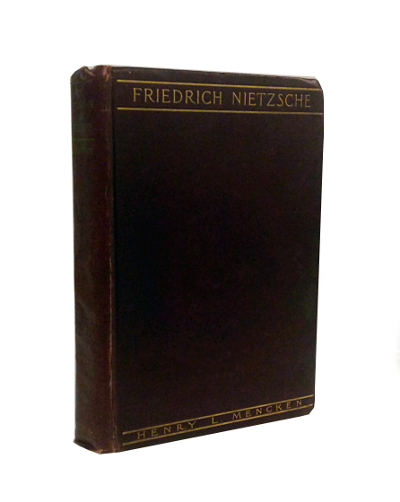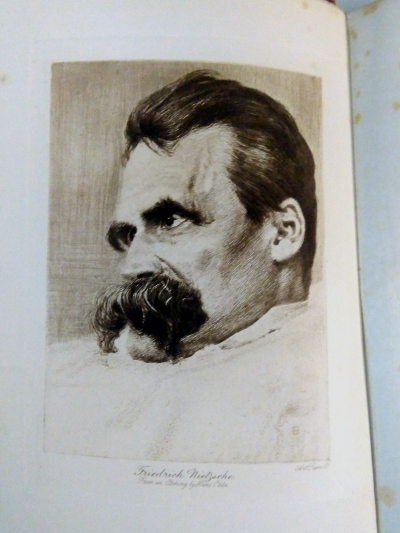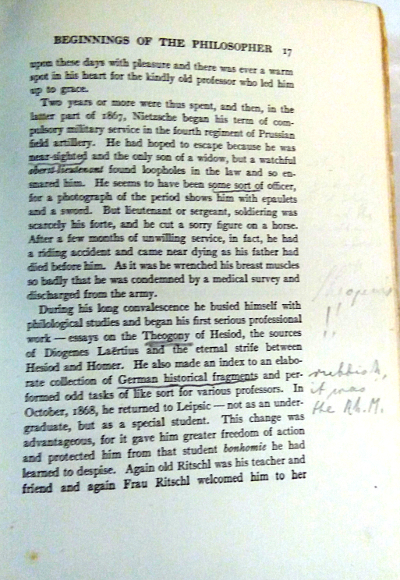About the book (from Wikipedia):
The Philosophy of Friedrich Nietzsche is a book by H. L. Mencken, the first edition in 1907. The book covers both better and lesser known areas of Friedrich Nietzsche’s life and philosophy. It is notable both for its suggestion of Mencken’s still-developing literary talents at the age of 27 and for its impressive detail as the first book on Nietzsche written in English (only seven years after Nietzsche’s death) considering the lack of reliable interpretations of Nietzsche in the Western sphere of letters at the time; Mencken prepared for writing this book by reading all of Nietzsche’s published philosophy, including several works in the original German.
Following its publication, The Philosophy of Friedrich Nietzsche quickly became a popular resource to scholars and lay audiences alike, though this is likely due to the fact that few such publications existed at that time. Mencken personally translated The Antichrist for use in his compendium.
About H. L. Mencken (from Wikipedia):
Henry Louis Mencken (September 12, 1880 – January 29, 1956) was an American journalist, satirist, cultural critic and scholar of American English. Known as the “Sage of Baltimore”, he is regarded as one of the most influential American writers and prose stylists of the first half of the twentieth century. He commented widely on the social scene, literature, music, prominent politicians and contemporary movements. His satirical reporting on the Scopes trial, which he dubbed the “Monkey Trial”, also gained him attention.





